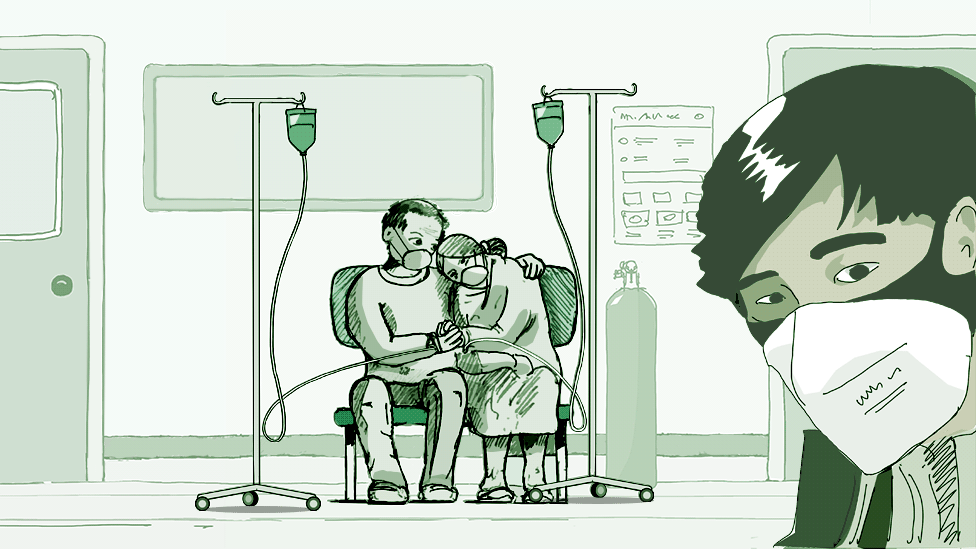Coronavirus: South Korea 'emergency' measures as infections increase
- Published
People in Daegu have voiced concern over the spread of the virus
South Korea has stepped up measures to contain the spread of the deadly new coronavirus, as confirmed infections increased sharply for a second day.
PM Chung Sye-kyun said it was now an emergency as 100 new cases and the country's second death were confirmed.
The virus has also spread in Iran, which reported two further deaths among 13 new cases, bringing the total number of deaths there to four.
Lebanon also announced its first confirmed case.
In Iran the outbreak is centred on the holy city of Qom, south of the capital Tehran, but health ministry official Minou Mohrez said the virus may already have spread to "all cities in Iran".
The case in Lebanon was a 45-year-old woman who had travelled from Qom, Lebanese Health Minister Hassan Hamad said.
World Health Organization (WHO) officials said both Iran and Lebanon had the basic capacity to detect the virus and the WHO was contacting them to offer further assistance.
"The measures China and others have taken have given us a fighting chance of containing the spread of the virus," WHO chief Dr Tedros Adhanom Ghebreyesus said.
"Our window of opportunity is narrowing so we need to act quickly," he added.
What is the latest in South Korea?
The southern cities of Daegu and Cheongdo have been declared "special care zones". The streets of Daegu are now largely abandoned.
All military bases are in lockdown after three soldiers tested positive.
About 9,000 members of a religious group were told to self quarantine, after the sect was identified as a coronavirus hotbed.
The authorities suspect the current outbreak in South Korea originated in Cheongdo, pointing out that a large number of sect followers attended a funeral of the founder's brother from 31 January to 2 February.
On Friday, a second person who contracted the coronavirus died.
The victim was a woman in her 50s. She died in the south-western city of Busan after being transferred there from a hospital in a nearby country, according to Yonhap news agency.
Reports say she had earlier been a patient at the same mental hospital in Cheongdo as the country's first victim - an elderly man. Another 15 patients there have also tested positive.
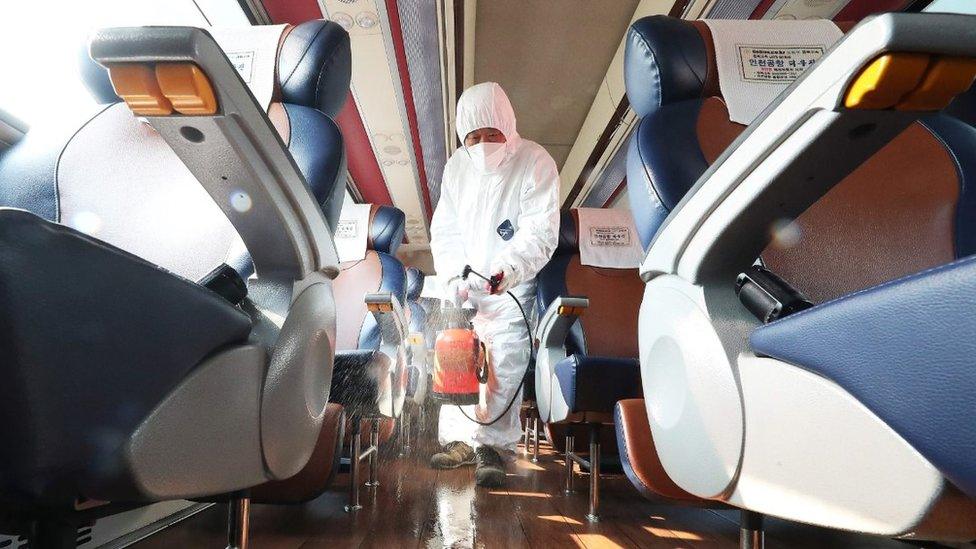
South Korea is trying hard to stop the local spread of the new coronavirus
On Thursday, 53 new cases were reported. South Korea now has a total of 204 cases making it the largest cluster outside mainland China and the cruise ship docked off Japan.
The new virus, which originated last year in Hubei province in China, causes a respiratory disease called Covid-19.


What happened in Daegu?
The city's biggest cluster appears to be at a branch of a religious sect which calls itself the Shincheonji Church of Jesus, Temple of the Tabernacle of the Testimony.
South Korean health officials believe these infections are linked to a 61-year-old woman who tested positive for the virus earlier this week. About 1,000 people attended the same service as the woman on Sunday.
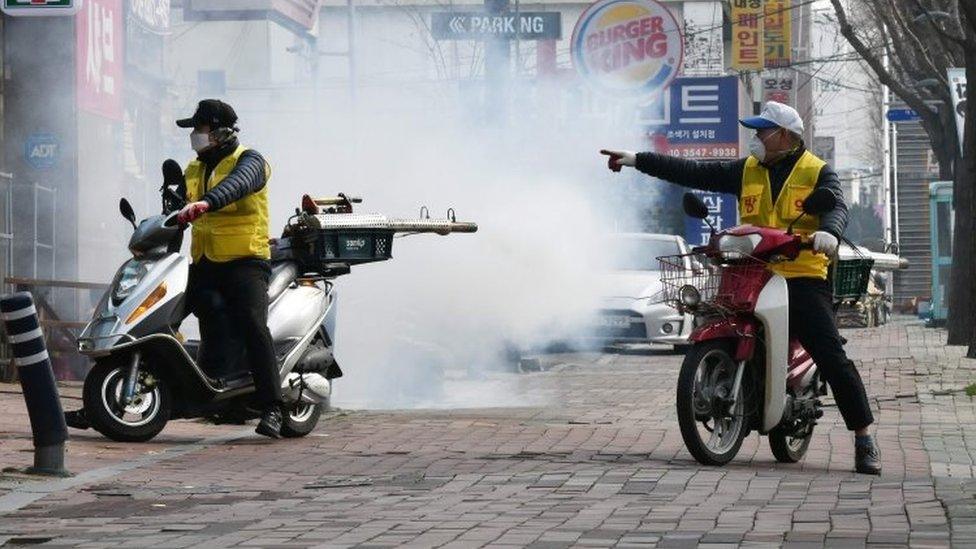
Workers have been disinfecting the streets of Daegu, South Korea's fourth-largest city
The Shincheonji, which has been accused of being a cult, said it had now shut down its Daegu branch and that services in other regions would be held online or individually at home.
As of Friday, more than 400 members of the church were showing symptoms of the disease, though tests were still ongoing, the city mayor said.
Daegu is the country's fourth-largest city, with a population of 2.5 million people.
Residents are now being asked to remain at home after authorities described the church cluster as a "super-spreading event".

Hand sanitizers and warning signs
By Hyung Eun Kim, BBC Korean Service, Seoul
Many people in South Korea are wearing masks on a daily basis.
Hand sanitizers have been placed at public transport stops and building entrances.
Warning government signs are everywhere. They say: "Three ways to prevent further infection: wear a mask at all times; wash your hands properly with soap for more than 30 seconds; and cover yourself when coughing."
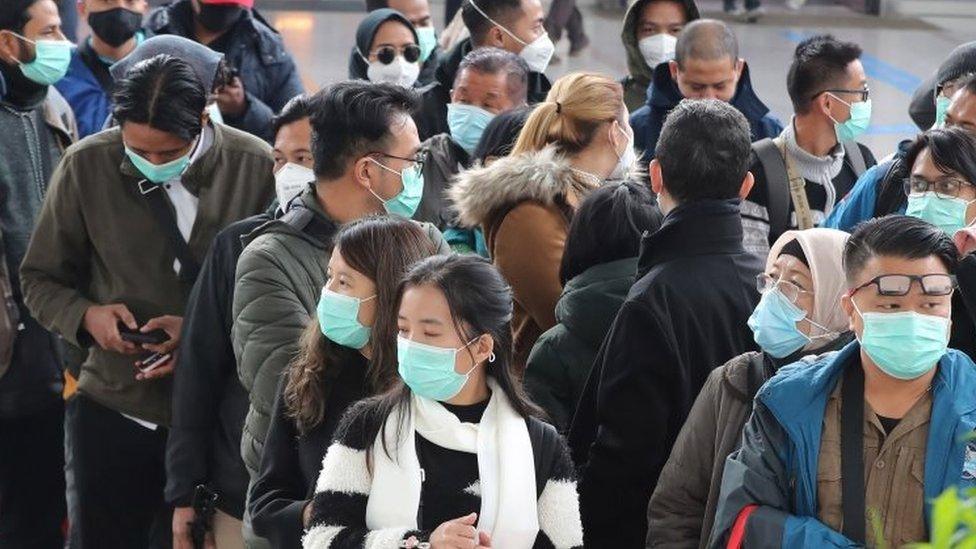
New norm: Mask-wearing crowd in Seoul
Koreans have also developed several apps and websites that tell you how much risk you face where you are. They show where the infected people are within a 10km radius.
"I can't miss work, what I can do is minimise contact with others and stay at home during the weekend," Seung-hye Lim, a Seoul resident, told the BBC.
"I do wonder if we reacted too laxly initially or if it really is because of the specific service practices of the Shincheonji sect."
So-young Sung, a mother of two in Seoul, told the BBC: "It feels like my daily life is collapsing."
She said she was struggling to find pharmacies that had masks.
She added that checking coronavirus-related alarms from her children's schools and kindergartens was now a daily routine for her.

What about China and elsewhere?
The latest figures from China put the death toll from the disease at 2,236 people and total infections at more than 75,000.
The virus has now hit the country's prison system, with more than 500 inmates confirmed infected. They include 230 patients in a women's prison in Wuhan, the city in Hubei province where cases first emerged. More cases have been found in a prison in the eastern province of Shandong and the south-eastern province of Zhejiang.
Some 36 people at a hospital in Beijing have also tested positive.
Senior officials have been sacked for mishandling management of the outbreak.
The virus has also spread around the globe with more than 1,000 cases and several deaths in the rest of Asia, in Europe, the Middle East, the US and Africa.


The WHO's Dr Tedros said the organisation was concerned about the virus's possible spread in countries with weaker health systems.
Passengers of the Diamond Princess who have tested negative continue to disembark the ship in Yokohama after more than 14 days quarantined on board.
Coronavirus: Quarantined passengers released from Japan ship
More than 150 Australian passengers have been evacuated from the ship and have already arrived in Darwin, where they will begin two more weeks of quarantine.
Australian officials said on Friday that six people had reported feeling unwell on arrival in Darwin and were immediately tested.
Two of those people tested positive despite having received negative tests before leaving Japan.
The first batch of people from Hong Kong have also flown back to the city, where they will similarly be quarantined.


What questions do you have about the coronavirus?
In some cases your question will be published, displaying your name, age and location as you provide it, unless you state otherwise. Your contact details will never be published. Please ensure you have read our terms & conditions and privacy policy.
Use this form to ask your question:
If you are reading this page and can't see the form you will need to visit the mobile version of the BBC website to submit your question or send them via email to YourQuestions@bbc.co.uk, external. Please include your name, age and location with any question you send in.
- Published21 February 2020
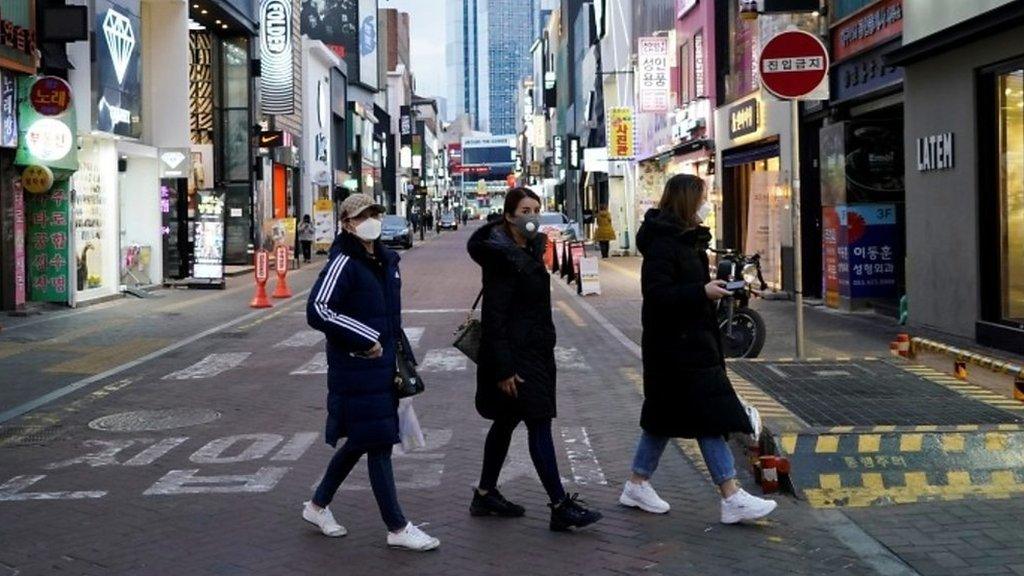
- Published21 February 2020

- Published21 February 2020
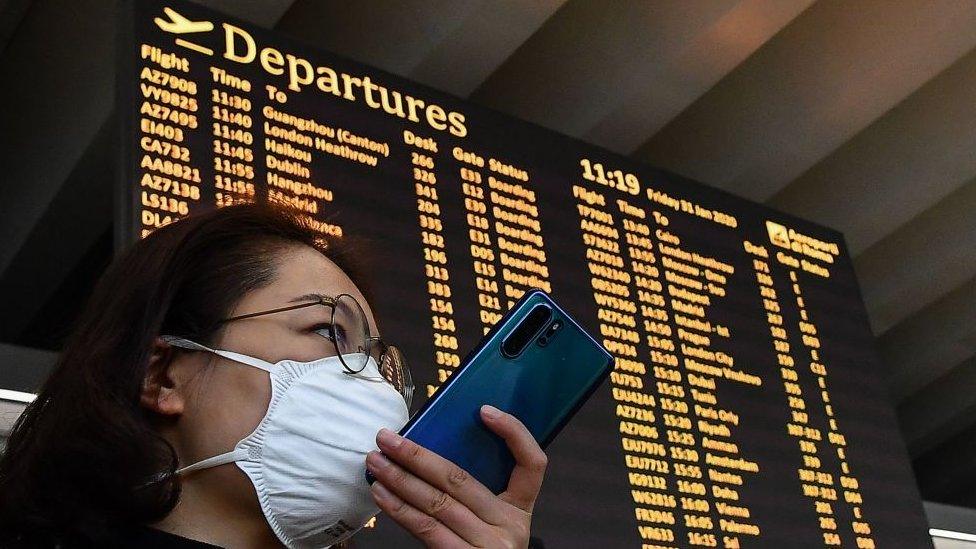
- Published21 February 2020
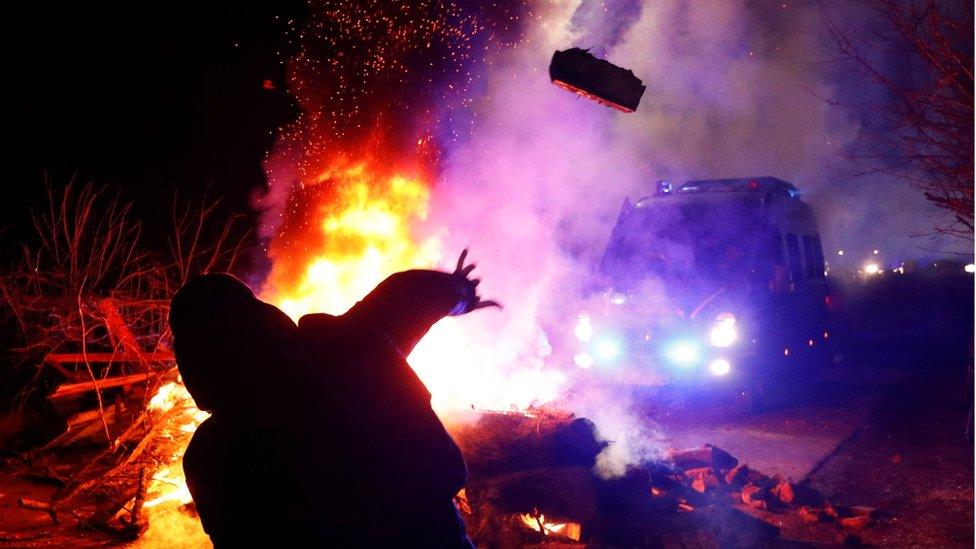
- Published19 February 2020

- Published6 October 2021

- Published14 February 2020
